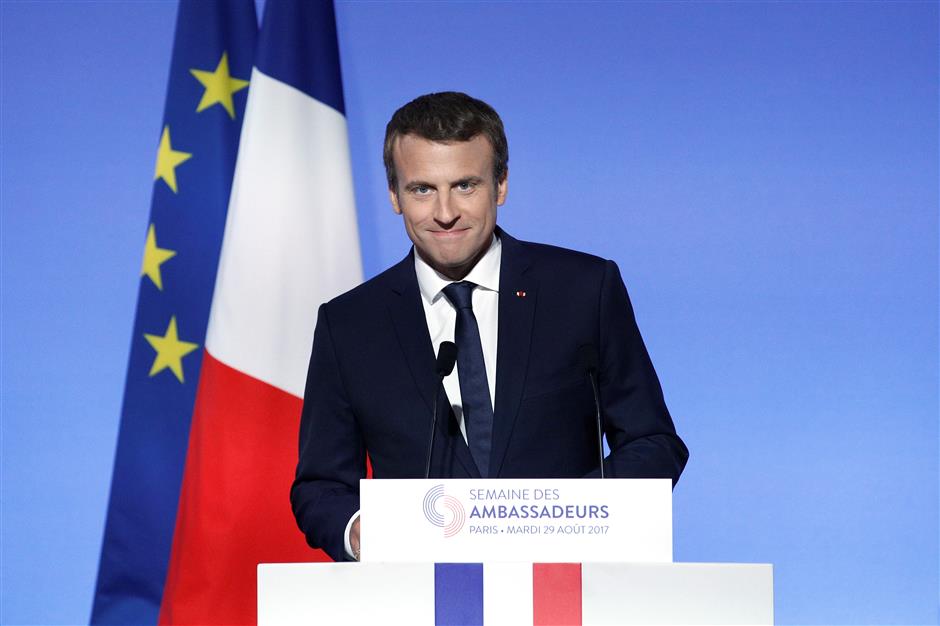Macron: fighting Islamist terrorism top priority

French President Emmanuel Macron looks on as he adresses French ambassadors during the annual gathering of French diplomatic corps at the Elysee Palace in Paris, on August 29, 2017.
French President Emmanuel Macron said yesterday that ensuring national security would be at the heart of France’s diplomatic activity and he set eradicating “Islamist terrorism” as his core foreign policy goal.
Following a policy based largely on ideological interests, France has in recent years been quick to intervene militarily in conflicts such as those in Libya, Mali and Central African Republic.
“I want France to propose solutions and initiatives when there are new crises,” he said in his first annual address to France’s 170 ambassadors. “The fight against Islamist terrorism is the priority of France’s foreign policy. France’s security is the main purpose of our diplomacy.”
French interventions in Africa and the Middle East have exposed it to attack by Islamist militants.
Gunmen and suicide bombers killed 130 people in and around Paris in November 2015 and over 100 people have been killed in other Islamist attacks in France in the past two-and-a-half years.
Since taking office in May, Macron has sought to improve ties with Russia after difficulties between Moscow and Paris under the previous administration. He has also tried to keep alive a dialog with US President Donald Trump, whose unorthodox leadership has riled some of his closest allies.
That has broadly aligned Macron’s foreign policy with the US priorities of tackling terrorism, while opening a window of dialog with Russia on Syria and Ukraine.
Macron said he wanted full transparency from Gulf Arab states on terrorism-financing networks. But he warned in a veiled message to Trump that taking sides amid the tensions between Sunni-led Saudi Arabia and its Shi’ite rival Iran could have devastating consequences for the region.
“We shoudn’t choose one side or another. Other great powers have,” Macron said.
He repeated his view that there was no alternative to the “good” 2015 deal struck between Iran and a group of world powers aimed at curbing the its nuclear program which the United States was reviewing.
Macron also said he wanted France to play a greater role on resolving the Syria conflict. Critics at home have said French policy had focused too much on calling for Syrian President’s eventual departure from power leaving it ostracized in international talks.















